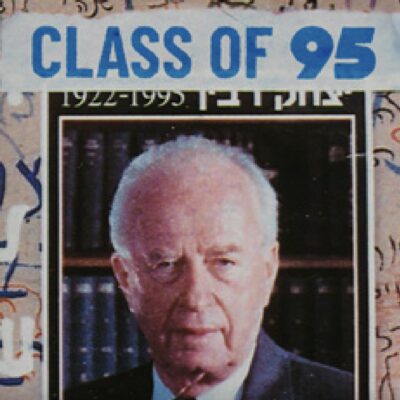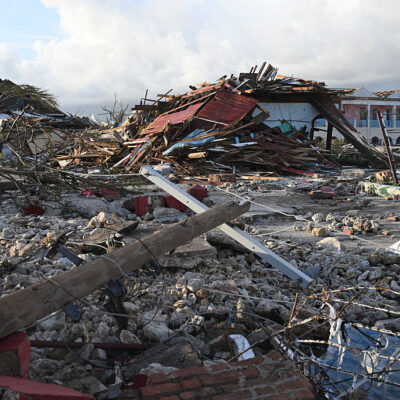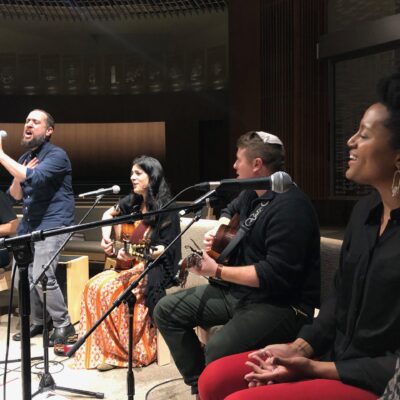Opinion
Self-care
Caring for school leaders
In Short
Caring for leaders is so critical to the future of the Jewish community. When it comes to the “care and tending” of Jewish educational leaders — those who are responsible for one of the Jewish community’s most treasured endeavors — there are trusted approaches, guidelines and patterns to emulate, just as in the construction of the Mishkan detailed in current and upcoming Torah portions.
Last week marked the shloshim, the 30-day period of mourning according to Jewish law, after my father passed away, so I have spent a lot of time recently thinking about what it is to care for yourself and others, and what it is to be cared for.
So much of our mourning tradition stems from minhag or tradition, so I realized that I was making a conscious choice to immerse myself in so many Jewish mourning practices. I found myself more deeply and intensely engaged than my pre-mourning self might have anticipated.

iStock
Because of the gradual transition through traditional mourning stages, from grief to re-entry to community, I have been able to accept the care and love of others around me and my family. The mourning structures helped me to accept their lovingkindness.
In parashat Terumah, the Torah portion this week, we read in great detail about structures. The building of the Mishkan or Tabernacle is a monumental and crucial moment in Jewish history.
The parashah opens with God telling Moshe how to go about gathering all the materials for the construction of the Mishkan and its accouterments.
Tell the Israelite people to bring Me gifts; you shall accept gifts for Me from every person whose heart so moves him. (Exodus 25:2)
Before God details the plans and blueprints for the Mishkan, we learn something else.
It starts from the heart.
There is no tax or obligation to give for the Mishkan. The entire project starts at the heart, with a kind of instinctual desire to participate.
The same is true as you mourn. The structures are an extraordinarily important part of our lives. And yet, their impact is to help manifest what comes from your heart, and enable the heartfelt love and support of the community around you to come through.
As I think about how difficult it can be to support our educational leaders, I wonder how we elevate established structures, such as a head support committee, to provide the support educators most need, in these extraordinary times. The structures can best help if we can create an environment where school leaders, and those in the position to support them, are able to open their hearts, and put the structures to work for their mutual benefit.
Caring for leaders is so critical to the future of the Jewish community. When it comes to the “care and tending” of Jewish educational leaders — those who are responsible for one of the Jewish community’s most treasured endeavors — there are trusted approaches, guidelines and patterns to emulate, just as in the construction of the Mishkan detailed in current and upcoming Torah portions.
Over the course of the past two years, the pressure felt by school leaders has been unrelenting, and sadly we do not forecast any shortcut through COVID, notwithstanding the game-changing efficacy of vaccines, masking and other mitigation strategies.
In the midst of this, how do we enable our leaders to let themselves be better cared for? What structures can we put in place to make it easier to accept support?
The answer may also be found in the parashah.
Note well, and follow the patterns for them that are being shown you on the mountain. (Exodus 25:40)
Even with all the detailed instructions and specifications about what goes where, there was confusion. Ibn Ezra picks up on this idea when he comments: “The making of the menorah required wisdom.” In addition to following the detailed instructions, there was a divine inspiration conveyed “on the mountain,” meaning the miraculous, awesome events that transpired on Sinai.
For school leaders and those who support them, there are policies, guidelines and principles. But there is also a measure of the miraculous in our work, the idea that the most impactful efforts come from the heart. We have the power to infuse the delivery and reception of support with even more.
In the recent issue of Kaleidoscope, the Prizmah monthly newsletter for thought leadership, we are pleased to share some of these excellent ideas, practices and strategies. Dr. Laura Segall, head of school at Hebrew Academy in Cote Saint Luc, Quebec, shows various strategies of self-care that they can take and others can encourage them to take. Mark S. Young and Sara Allen emphasize the importance of supportive work relationships, as modeled in Jewish tradition, for fostering a strong sense of belonging and connection.
Support can appear transactional — as straightforward as a homemade kugel dropped off to feed a mourning family — but we know that when we open our hearts to the work of caring for leaders, and to the miracle of being supported, we create space for transformative impact on individuals, on schools and on our communities.
Paul Bernstein is CEO, Prizmah: Center for Jewish Day Schools.

 Add EJP on Google
Add EJP on Google








